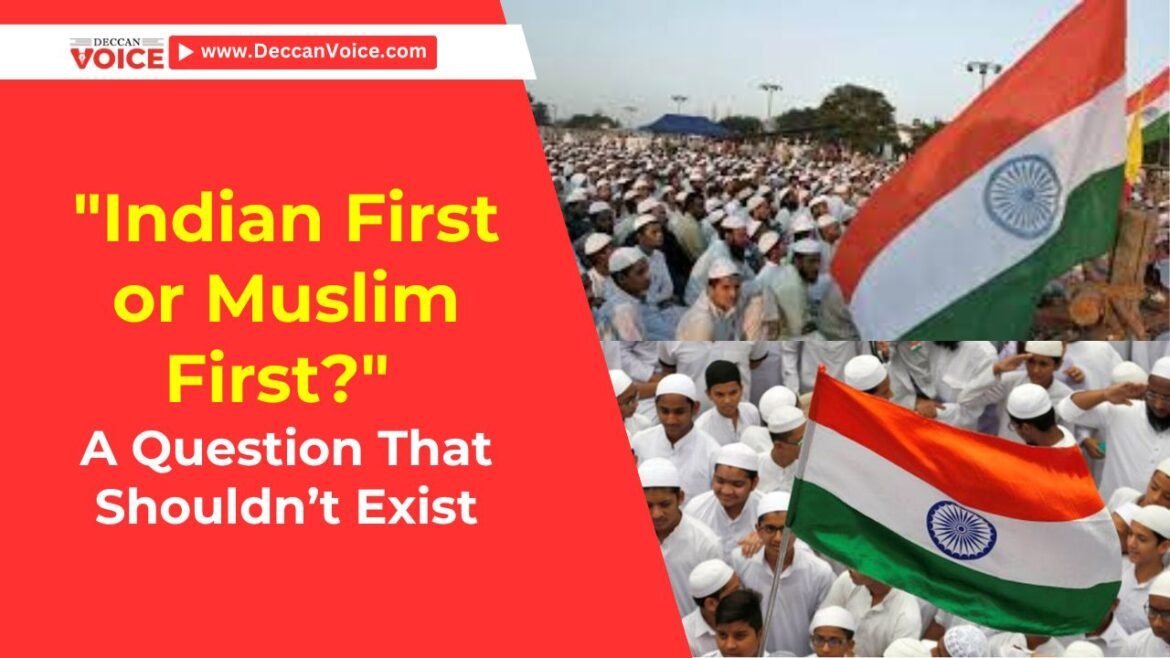Table of Contents
In the ongoing dialogue about patriotism and faith, a question frequently hurled at Indian Muslims is: Are you Indian first or Muslim first? While seemingly simple, the question is rooted in ignorance and prejudice — and reflects a misunderstanding of what identity means in the Indian context.
India is a Geographical Identity, Islam is a Religious Faith
India is a country, a geographical entity. Being Indian means belonging to this land, just like Americans or Russians belong to their nations. On the other hand, Islam is a religion, a spiritual code of ethics that teaches compassion, justice, and discipline. The two are not mutually exclusive.
An Indian Muslim is simply someone who follows Islam and resides in India — just like there are American Muslims, French Muslims, or Indonesian Muslims.
Islam Promotes Responsible and Peaceful Citizenship
Islam places immense emphasis on moral conduct and societal welfare. Among its core teachings:
Justice and fairness, regardless of religion
Respect for neighbors and all humanity
Obeying the law of the land, unless it contradicts fundamental human rights
Peaceful coexistence and rejecting compulsion in religion
Standing against oppression in all forms
Islam encourages its followers to contribute positively to society, making them better citizens wherever they reside.
If Safety and Justice Are Denied, Islam Allows Migration
Importantly, Islam also acknowledges situations where injustice prevails. If the laws of a region violate human dignity or basic Islamic values, such as justice, equality, and safety, then Islam permits believers to migrate to safer places. For example, in Manipur, where ethnic and religious violence has endangered many lives, Islamic teachings would support moving to other states of India where one feels secure and respected, so they can live peacefully and practice their faith freely.
This concept is not about rejection of the nation — it’s about seeking protection when basic rights are denied.
Indian Muslims Have Contributed Immensely to the Nation
From freedom fighters like Maulana Azad to former President Dr. APJ Abdul Kalam, Indian Muslims have always stood for the integrity and progress of India. They have contributed across fields — science, defense, education, politics, and literature.
To question their loyalty simply because of their religion is not only unjust, but also disrespectful to India’s secular and democratic spirit.
If someone asks you, ‘Are you Indian first or Muslim first?’, simply say with pride: ‘I am an Indian Muslim.’ Any thoughtful person will understand that in every country, nationalism and faith can coexist, and being a good citizen comes first. If the person still doesn’t understand this basic logic, it’s best to leave them to their ignorance and move on with dignity.
This Question Promotes Division, Not Patriotism
Targeting Muslims with this question feeds into the divisive narrative that equates religious identity with disloyalty. Would you ask a Sikh or a Hindu whether they are Indian first or religious first?
Such double standards breed mistrust and harm national unity.
Conclusion: Nationalism and Faith Can Coexist Peacefully
It is absolutely possible — and common — to be both a devout Muslim and a proud Indian. In fact, being a good Muslim compels one to be a law-abiding, peaceful, and socially responsible citizen.
Instead of asking “Are you Indian first or Muslim first?”, let’s ask “How can we make India better — together?”



